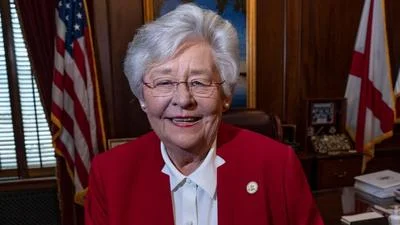The Congressional Record is a unique source of public documentation. It started in 1873, documenting nearly all the major and minor policies being discussed and debated.
“JUNETEENTH NATIONAL INDEPENDENCE DAY ACT” mentioning Doug Jones was published in the Extensions of Remarks section on pages E684-E685 on June 23.
Of the 100 senators in 117th Congress, 24 percent were women, and 76 percent were men, according to the Biographical Directory of the United States Congress.
Senators' salaries are historically higher than the median US income.
The publication is reproduced in full below:
JUNETEENTH NATIONAL INDEPENDENCE DAY ACT
______
speech of
HON. SHEILA JACKSON LEE
of texas
in the house of representatives
Wednesday, June 16, 2021
Ms. JACKSON LEE. Madam Speaker, as a senior member of the House Judiciary Committee, the Chair of the Subcommittee on Crime, Terrorism, and Homeland Security, and the principal sponsor in the House of the Juneteenth National Independence Day Act, I rise in strong and enthusiastic support of S. 475, the Senate companion to the Juneteenth National Independence Day Act for my bill H.R. 1320 introduced on February 25, 2021, which establishes June 19 as a federal holiday.
Research by the Library of Congress looking back to the beginning of the Congress's existence as a legislative body could find no bill that sought to make Juneteenth a federal holiday, prior to the bill I introduced on June 18, 2020.
I have introduced the Juneteenth resolution annually since 2013.
In 2020, the resolution received 214 sponsors in the House of Representatives.
This surge in support let me know that the nation was ready for a new holiday and therefore I introduced H.R. 7232, the Juneteenth National Independence Day Act which received 158 sponsors in the 116th Congress.
Senator Doug Jones and Senator Edward Markey contacted my office seeking to introduce a Senate companion.
Later Ed Markey's staff reached out to collaborate on a Senate version of my Juneteenth Holiday bill and ultimately introduced the Senate version of the bill, which followed the text of H.R. 1320.
I applaud the U.S. Senate for passing S. 475/1320, Juneteenth National Independence Day Act, companion legislation to H.R. 1320, which I introduced to make Juneteenth a federal holiday to commemorate the end of chattel slavery, America's Original Sin, and to celebrate the perseverance that has been the hallmark of the African American struggle for equality.
I thank Senator Markey of Massachusetts for contacting my office with his request to introduce the Senate companion to H.R. 1320 for this Congress, and to my senior senator, Senator John Cornyn of Texas for his steadfast support of the Juneteenth holiday over the years, and others who spearheaded this effort in the Senate, and Senate Majority Leader Schumer for his support and for using his legislative skills to ensure the bill was voted on and passed.
Madam Speaker, the process that has brought us to this day has been bipartisan, bicameral, cooperative, and constructive beginning with my collaboration in the 116th Congress with former Senator Doug Jones of Alabama and Senator Cornyn of Texas to coordinate the introduction and cultivate the necessary support for the Juneteenth National Independence Day Act.
That partnership has continued through the 117th Congress with the addition of Senator Markey of Massachusetts as the lead Democratic sponsor in the Senate.
The bipartisan H.R. 1320, the House version of S. 475/H.R. 1320, is sponsored by 166 Members from all regions of the country, including two of my Republican colleagues from Texas, Congressman Van Taylor and Congressman Randy Weber.
Madam Speaker, now it is time for the House of Representatives to act swiftly and bring to the floor, vote on, pass the Juneteenth National Independence Day Act, and send it to the desk of President Biden for signature.
With the President's signature, the federal government will join 47 states in recognizing as a holiday Juneteenth, the day that has been celebrated by African Americans for 156 years and has been called rightly as `America's second Independence Day.'
Let me extend on behalf of all of us who have labored to pass this important legislation our deep appreciation to the House leadership, particularly Majority Leader Hoyer, for their support which paved the way for the House last year to pass by unanimous consent H. Res. 1001, the resolution I introduced recognizing Juneteenth Independence Day.
As I have said many times, Juneteenth is as significant to African Americans as July 4 is to all Americans because on that day, June 19, 155 years ago, General Gordon Granger, the Commanding Officer of the District of Texas, rode into Galveston, Texas and announced the freedom of the last American slaves; belatedly freeing 250,000 slaves in Texas nearly two and a half years after Abraham Lincoln signed the Emancipation Proclamation.
When General Granger read these words of General Order No. 3 set off joyous celebrations of the freedmen and women of Texas:
``The people of Texas are informed that in accordance with a Proclamation from the Executive of the United States, all slaves are free. This involves an absolute equality of rights and rights of property between former masters and slaves, and the connection therefore existing between them becomes that between employer and hired laborer.''
Juneteenth thus made real to the last persons living under the system of chattel slavery, of human bondage, the prophetic words of President Abraham Lincoln delivered November 19, 1863, at Gettysburg `that this nation, under God, shall have a new birth of freedom--and that government of the people, by the people, for the people, shall not perish from the earth.'
Juneteenth was first celebrated in the Texas state capital in 1867 under the direction of the Freedmen's Bureau and remains the oldest known celebration of slavery's demise, commemorating freedom while acknowledging the sacrifices and contributions made by courageous African Americans towards making our great nation the more conscious and accepting country that it has become.
As the nation prepares to celebrate July 4th, our Nation's independence day, it is a time to reflect on the accomplishments of our nation and its people.
The celebration of Juneteenth followed the most devastating conflict in our country's history, in the aftermath of a civil war that pitted brother against brother, neighbor against neighbor and threatened to tear the fabric of our union apart forever that America truly became the land of the free and the home of the brave.
Juneteenth honors the end of the 400 years of suffering African Americans endured under slavery and celebrates the perseverance that has been the hallmark of the African American experience in the struggle for equality.
But as the poet Langston Hughes reminds us in his famous poem,
`Mother to Son,'' life in America for African Americans ``ain't been no crystal stair.'
The post-bellum period in America was marked by violence and terrorism against African Americans as they sought to make real the promises of the Declaration of Independence and the Constitution.
General Granger's reading of General Order No. 3 ended the remaining vestiges of the system of chattel slavery, a form of perpetual human bondage that held generations of Africans in captivity in the United States for two-hundred and forty-eight years and opened a new chapter in American history.
Recognizing the importance of this date, former slaves coined the word ``Juneteenth'' to celebrate the occasion, the first of which occurred in the Texas state capital in 1867 under the direction of the Freedmen's Bureau.
Juneteenth was and is a living symbol of freedom for people who did not have it.
Juneteenth remains the oldest known celebration of America's freedom from slavery.
I commemorates freedom while acknowledging the sacrifices and contributions made by courageous African Americans in the quest to make our more perfect.
The celebration of Juneteenth followed the most devastating conflict in our country's history, in the aftermath of a civil war that pitted brother against brother, neighbor against neighbor and threatened to tear the fabric of our union apart forever that America truly became the land of the free and the home of the brave.
The Rev. Dr. Martin Luther King, Jr. once said, ``Freedom is never free,'' and African American labor leader A. Phillip Randolph often said ``Freedom is never given. It is won.''
Truer words were never spoken.
We should all recognize the power and the ironic truth of those statements, and we should pause to remember the enormous price paid by all Americans in our country's quest to realize its promise.
In recent years, a number of National Juneteenth Organizations have arisen to take their place alongside older organizations--all with the mission to promote and cultivate knowledge and appreciation of African American history and culture.
I am reminded that the first legislation introduced in Congress recognizing Juneteenth occurred a quarter century ago, in 1996, when H.J. Res. 195 was introduced by Congresswoman Barbara Rose Collins of Michigan and I have introduced similar legislation annually since the 109th Congress.
So it has been a long road we have travelled to get to this day, even longer that the 15-year journey taken to pass the bill making the Birthday of the Rev. Dr. Martin Luther King, Jr. a national holiday.
Juneteenth celebrates African American freedom, and in so doing celebrates America's history and promise, while encouraging selfdevelopment and respect for all cultures.
But it must always remain a reminder to us all that liberty and freedom are precious birthrights of all Americans, which must be jealously guarded and preserved for future generations.
In conclusion, I wish to take a moment to salute two of the unsung heroes who helped bring us to this day: the late Texas State Representative Al Edwards and nonagenarian Opal Lee, known affectionately as the ``Grandmother of Juneteenth.''
In 1852, Frederick Douglass famously asked: ``What to the slave is the 4th of July?''
In 2021, we can reply that it is the beginning of the American Promise that would be fulfilled and made real for all Americans, including the descendants of slaves, on June 19, 1865, `Juneteenth Day.'
That is why we celebrate Juneteenth and that is why I urge all Members to join me in voting to pass H.R 1320/S. 475, the ``Juneteenth National Independence Day Act.''
____________________





 Alerts Sign-up
Alerts Sign-up